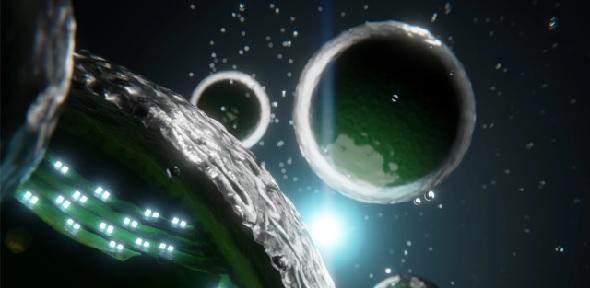
Researchers have ‘hacked’ the earliest stages of photosynthesis, the natural machine that powers the vast majority of life on Earth, and discovered new ways to extract energy from the process, a finding that could lead to new ways of generating clean fuel and renewable energy.
An international team of physicists, chemists and biologists, led by the University of Cambridge, was able to study photosynthesis – the process by which plants, algae and some bacteria convert sunlight into energy – in live cells at an ultrafast timescale: a millionth of a millionth of a second. Despite the fact that it is one of the most well-known and well-studied processes on Earth, the researchers found that photosynthesis still has secrets to tell. Using ultrafast spectroscopic techniques to study the movement of energy, the researchers found the chemicals that can extract electrons from the molecular structures responsible for photosynthesis do so at the initial stages, rather than much later, as was previously thought.
This ‘rewiring’ of photosynthesis could improve how it deals with excess energy, and create new and more efficient ways of using its power.
"We didn’t know as much about photosynthesis as we thought we did, and the new electron transfer pathway we found here is completely surprising. No one had properly studied how this molecule interplays with photosynthetic machinery at such an early point of photosynthesis: we thought we were just using a new technique to confirm what we already knew. Instead, we found a whole new pathway, and opened the black box of photosynthesis a bit further." Dr Jenny Zhang, Yusuf Hamied Department of Chemistry, University of Cambridge
Led by the University of Cambridge, researchers have studied the photosynthesis process in live cells at an ultrafast timescale: a millionth of a millionth of a second. Using ultrafast spectroscopic techniques to study the movement of energy, the researchers found the chemicals that can extract electrons from the molecular structures responsible for photosynthesis do so at the initial stages, rather than much later, as was previously thought.
"The physics of photosynthesis is seriously impressive. Normally, we work on highly ordered materials, but observing charge transport through cells opens up remarkable opportunities for new discoveries on how nature operates." Dr Tomi Baikie, Cavendish Laboratory, University of Cambridge
The researchers say that being able to extract charges at an earlier point in the process of photosynthesis, could make the process more efficient when manipulating photosynthetic pathways to generate clean fuels from the Sun. In addition, the ability to regulate photosynthesis could mean that crops could be made more able to tolerate intense sunlight.
Key to the discovery was the use of ultrafast spectroscopy, which allowed the researchers to follow the flow of energy in the living photosynthetic cells on a femtosecond scale – a thousandth of a trillionth of a second.
Read the full University of Cambridge article
Publication: ‘Photosynthesis re-wired on the pico-second timescale.’ Nature (2023). DOI: 10.1038/s41586-023-05763-9
Image: Tomi Baikie, Lead co-author

